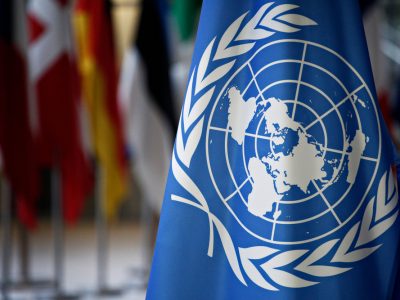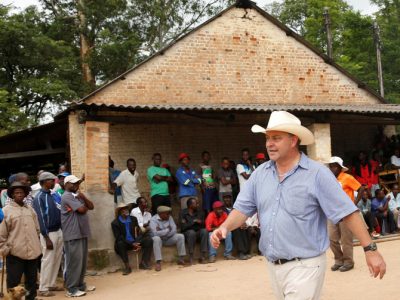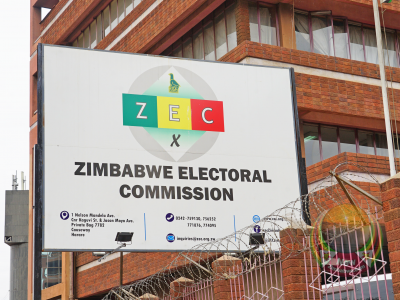Zimbabwe yesterday joined the rest of the world in commemorating World Press Freedom Day with media representatives having mixed feelings over the Second Republic’s handling for its failure to do reforms upgrading rights of access to information and increasing diversity and pluralism in the broadcasting sector.
This year’s World Press Freedom Day theme is: “Information as a Public Good”.News Hawks founder Dumisani Mleya did not mince his words saying the government has never meant well for journalism in Zimbabwe.
He said ”these are the issues they say we are not clamping down on journalists, we are clamping down on activist journalists..Hopewell Chin’ono, Mdudusi Mathuthu..abduction murder torture, these are the things..because they show us that journalism has been criminalised, it is being criminalized, journalism is still a profession that carries a lot of risk for us..”
”that doesnt need to be the case, when we reform we want journalists to be free..”
”As long as they work professionally ethically there is no need to arrest journalists.There is no need, and when journalists fail in their duty, there are mechanisms to hold them to account.”
In a statement yesterday, Information, Publicity and Broadcasting Services Minister Monica Mutsvangwa, said the theme underlined the indisputable importance of verified and reliable information. She called for attention to the essential role of free and professional journalists in producing and disseminating information by tackling misinformation and other harmful content.
Owners of media houses should ensure that the welfare of media practitioners was improved through provision of decent working conditions and life-rewarding salaries.
“I am proud that under the Second Republic, Zimbabwe has made significant strides in ensuring a safe, free and competitive operating environment for all media and ensuring that indeed information is treated as a public good.
“Highlights of the Government’s efforts towards ensuring press freedom include the passage of several Bills into laws and the opening of airwaves for television and radio broadcasts,” she said.
However other journalists see it different from what Minister Mutsvangwa said a good example Editor in Chief of NewsHawks who continued on denouncing the censorship of journalists.Dumisani Mleya said
”and that condition in which the media exists clearly makes it difficult for journalists to operate.So what is needed in Zimbabwe broadly speaking is reforms not just of the media but of the system of governance.The system of the state, if we have a new model of government from an authoritarian to a much more liberal democratic model of governance you will see the media itself being freed and expanded because these things they work together its a system.”
Dumisani believes government is giving with one hand and taking with the other.They say something and do a different thing all together.
In July, 2020, the Access to Information and Protection of privacy Act (AIPPA) was repealed. A new and functional Freedom of information Act heralded a new chapter in the country’s media’s landscape in as far as transparency and access to information is concerned.
The Zimbabwe Media Commission was transformed into what amounts to a consumer complaints investigator.
“In April this year, the Zimbabwe Media Commission Act came into effect. This Act seeks to make further provision with regard to the functions of the ZMC to provide for the manner in which the commission exercises its functions. It also provides for the investigation and hearing procedure by the commission of complaints received and to provide for the secretariat of the commission among others.
Minister Mutsvangwa said in opening up of airwaves, six private television stations were granted licences by the Broadcasting Authority of Zimbabwe in November last year
In addition, six language based community radio stations were licensed and it is expected that these will bring even more diversity and plurality into the media sector as well as create employment.
“These developments are an expression of Government’s tolerance for different voices and views from media practitioners.
“This shows Government of Zimbabwe’s full commitment to the principles of press freedom contained in Article 19 of the Universal Declaration of Human Rights, and in the African Commission on Human and People’s Rights, which we are reinforcing through our own country’s supreme law, the Constitution,” she said.
“Media practitioners have to improve on the standards of the profession. They should report in a truthful informative and analytical way and avoid temptation of tabloid sensationalism. Government has adopted stringent policies against the spread of fake news and it is our belief that the measures in place provide good grounds for credible journalists to thrive,” she said.
She thanked journalists for their dedication to duty during under Covid-19 period.
Yet inspite pf all these so called changes, Dumisani Mleya insists this is no different from putting lipstick on a pig.It remains a pig. Mleya said government is insincere , inconsistent and do not mean any good to journalism thriving in the country.
The NewsHawks boss said, ”its an authoritarian system, the evidence is there all over people being arrested over nothing, you are arrested over some breach of covid you stay there for months and all that kind of ..”
” the law is applied selectively, some activists MP Joanna Mamombe and others they are there..The punishment in relationship to the alleged crime is so disproportionate.Simply because they are opposition, you apply different rules to them.To the other guys from the ruling party and they are there..so ot tells you the priblem is the political situation or the system of governance.”
MISA Zimbabwe chairperson Golden Maunganidze however commended were Government enected the Freedom of Information Act last year in place of the widely discredited Access to Information and Protection of Privacy Act (AIPPA).
“The new information law is a progressive step towards fostering citizens’ right to access to information,” he said.
Mr Maunganidze said other commendable developments included the licensing of the country’s first ever community radio stations and private commercial television stations as well as campus radio stations at Great Zimbabwe University, Midlands State University, University of Zimbabwe, Lupane State University, National University of Science and Technology and Harare Polytechnic College.
“This enhances diversity and pluralism in the broadcasting sector and citizens’ right to access to information as a public good that assists in making informed decisions and choices.
Zimbabwe National Editors Forum deputy chairperson, Victoria Ruzvidzo, said this year’s World Press Freedom Day came at a time when the media landscape in Zimbabwe had been transformed in a big way.
“The coming in of the Second Republic has ushered in a reform agenda that has restored journalists’ rights and freedoms. The AIPPA Act in which journalists and other stakeholders had concerns has been replaced by the Freedom of Information Act and the Media Commission Act. The other two bills meant to be tabled before parliament are Media Practitioners Bill as well as Protection of Personal Information Bill. Furthermore, the media space is being widened as attested by the licencing of six television channels.
“One major stride is the recognition of women in the media by Government that has seen more women being appointed in positions of authority. Our Minister of Information, Senator Monica Mutsvangwa, has really come out in full force to ensure more women are recognised and appointed as editors and station managers alike,” she said.
Zimbabwe Union of Journalists president Mr Michael Chideme encouraged public institutions to allow easy access to information to increase trust and confidence.
“We also urge employers to provide tools of the trade that allow journalists to do their work such as cameras, recorders, transport and living wages,” he said.
World Press Freedom Day was proclaimed in 1993 by the UN General Assembly following a recommendation adopted at the 26th session of UNESCO’s General Conference in 1991.
”Government must insist that journalists must remain professional.They must not insist that journalists must write what they want.They must allow journalism to thrive.They must not criminalise journalism.When journalism thrives it creates jobs addresses other social problems…so it is in the interest of us to have a thriving journalism..










Comments